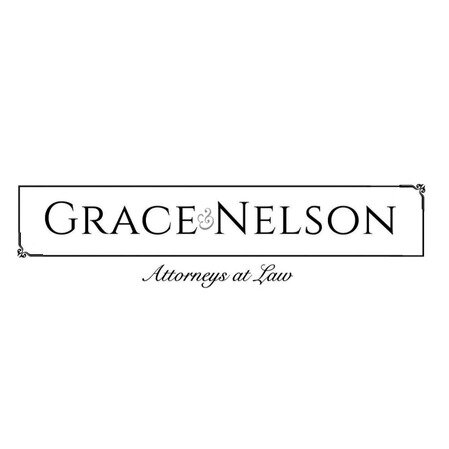Best Landlord & Tenant Lawyers in Cuenca
Share your needs with us, get contacted by law firms.
Free. Takes 2 min.
Free Guide to Hiring a Real Estate Lawyer
List of the best lawyers in Cuenca, Ecuador
About Landlord & Tenant Law in Cuenca, Ecuador
Landlord and tenant law in Cuenca, Ecuador is primarily governed by the country’s Urban Tenancy Law (Ley de Inquilinato), which is designed to create a fair environment for both landlords and tenants. The law outlines the rights and responsibilities of both parties and aims to balance their interests to prevent disputes. Real estate activities, including leasing, can also be influenced by broader property laws and municipalities’ local ordinances. Cuenca, being a popular destination for expatriates, often presents unique challenges and opportunities in the rental market.
Why You May Need a Lawyer
Engaging a lawyer for landlord and tenant issues can be vital in several situations:
- Lease Negotiations and Drafting: Legal guidance ensures that lease agreements are comprehensive and enforceable, protecting the client’s interests.
- Dispute Resolution: Lawyers can mediate disputes to avoid lengthy and costly court battles.
- Evictions: The eviction process is tightly regulated, and legal assistance ensures compliance with all relevant laws.
- Understanding Rights and Obligations: Lawyers can clarify legal uncertainties for landlords and tenants, ensuring informed decision-making.
- Dealing with Repairs and Maintenance Issues: Legal counsel can ensure responsibilities are met in accordance with the lease and local laws.
Local Laws Overview
Key aspects of local laws in Cuenca relevant to landlords and tenants include:
- Lease Agreement Regulations: The lease must be in writing, and parties should clearly understand its terms.
- Security Deposits: Usually set at the equivalent of one to two months' rent and must be returned unless there’s a justified retention.
- Rent Increases: Rent hikes are generally regulated, with specific grounds and limits set out in the law.
- Tenant's Rights: Tenants have the right to habitable conditions and privacy, with any entries usually requiring notice.
- Landlord’s Obligations: Landlords must maintain the property, respecting the tenants' occupancy and contract terms.
- Termination of Lease: Requires mutual agreement or legal ground, such as breach of contract.
Frequently Asked Questions
1. What is the typical lease duration for rentals in Cuenca?
Leases typically last for one year, but shorter or longer terms can be negotiated by both parties.
2. Can landlords enter the rental property without notice?
No, landlords need to provide notice and obtain tenant consent unless there’s an emergency.
3. Are there rent control laws in Cuenca?
Yes, rent increases are regulated, and any changes must adhere to the standards set by local law.
4. What happens if a tenant doesn’t pay rent on time?
Landlords can take legal steps to demand payment or initiate eviction procedures if necessary.
5. Who is responsible for property maintenance?
Landlords generally handle structural repairs and significant issues, while tenants maintain daily cleaning and small repairs.
6. How much notice is required to terminate a lease?
The notice period is typically agreed upon in the lease, often ranging from 30 to 60 days.
7. Is a written lease necessary?
Yes, written leases are essential for legal enforceability and to clearly define terms and responsibilities.
8. Can a tenant sublet the apartment?
Subletting is only allowed if explicitly stated in the lease agreement or with the landlord's consent.
9. Are utilities included in the rent?
This varies by contract and should be specified in the lease agreement.
10. What should I do if I face eviction?
Contact a lawyer immediately, as they can offer guidance, represent you in negotiations, and protect your rights.
Additional Resources
Consider these resources for assistance and further information:
- Ministry of Urban Development and Housing: Offers detailed information on housing laws.
- Local Bar Associations: Provides referrals and access to proficient legal counsel.
- Tenant Rights Groups: Community organizations that advocate for tenant rights and provide support.
- Municipal Offices: Offer localized information on regulations and property issues in Cuenca.
Next Steps
If you require legal assistance in landlord and tenant matters in Cuenca:
- Consult a Lawyer: Seek out professionals who specialize in property and tenancy law.
- Gather Documentation: Collect all relevant documents, such as lease agreements and correspondence.
- Prepare Questions: Have a list of questions ready to ensure a comprehensive consultation.
- Consider Mediation: It can be an efficient first step before pursuing litigation.
- Follow Legal Advice: Adhere to instructions and gather any additional requested information promptly.
Lawzana helps you find the best lawyers and law firms in Cuenca through a curated and pre-screened list of qualified legal professionals. Our platform offers rankings and detailed profiles of attorneys and law firms, allowing you to compare based on practice areas, including Landlord & Tenant, experience, and client feedback.
Each profile includes a description of the firm's areas of practice, client reviews, team members and partners, year of establishment, spoken languages, office locations, contact information, social media presence, and any published articles or resources. Most firms on our platform speak English and are experienced in both local and international legal matters.
Get a quote from top-rated law firms in Cuenca, Ecuador — quickly, securely, and without unnecessary hassle.
Disclaimer:
The information provided on this page is for general informational purposes only and does not constitute legal advice. While we strive to ensure the accuracy and relevance of the content, legal information may change over time, and interpretations of the law can vary. You should always consult with a qualified legal professional for advice specific to your situation.
We disclaim all liability for actions taken or not taken based on the content of this page. If you believe any information is incorrect or outdated, please contact us, and we will review and update it where appropriate.








